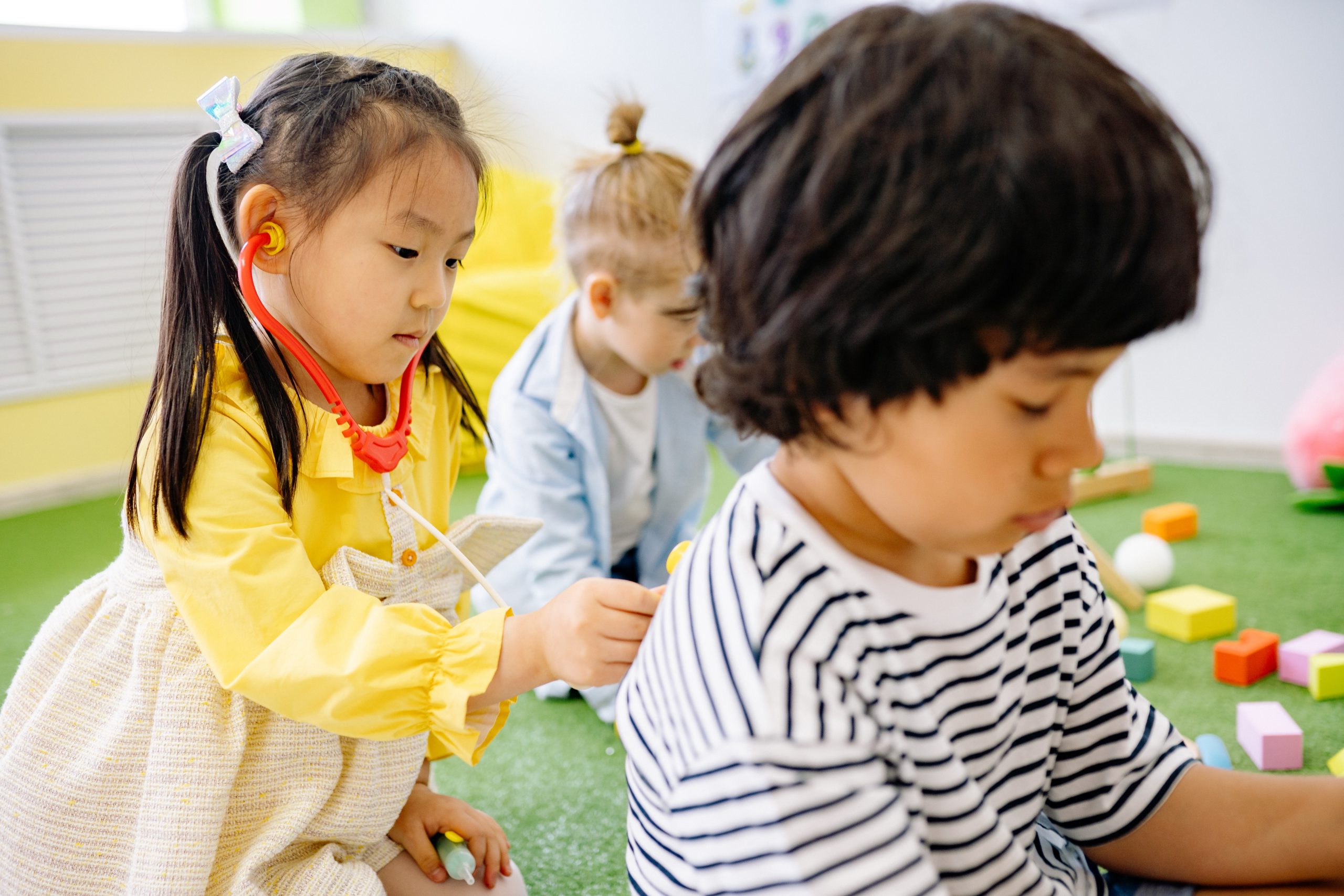The Effects of Hearing Loss on a Child’s Development
About Hearing and Development
Hearing is important to speech and language development and to learning.
Hearing sounds and words helps children learn to talk and understand. A child with hearing loss misses out on these sounds. This can cause problems with speaking, reading, school success, and social skills. It is important to have students hearing tested if you think they have trouble hearing and to talk to their parents about your concerns. Getting help early is key.
Hearing loss in children can lead to:
- Delayed speech and language skills
- Learning problems in school
- Feeling bad about himself
- Having trouble making friends
Vocabulary Development
Children with hearing loss do not learn words as fast as those who have normal hearing. They may:
- Learn concrete words like cat, jump, five, and red. However, they may have trouble with abstract words like before, equal to, and shy. They may not use words like the, an, are, and a.
- Have trouble knowing the different meanings of a word. Think about the word bat. It can mean a flying animal or what we use to play baseball. A child with hearing loss may not understand these meanings.
- Fall farther behind children with normal hearing as they get older. Children with hearing loss do not catch up without help.
Language Development
Children with hearing loss may have trouble understanding and using sentences. They may:
- Understand and use shorter sentences than children with normal hearing.
- Have problems with more complex sentences. They may not use clauses in their sentences. An example of a clause is “When I get home, I will eat dinner.” They may not use passive voice. An example of this is “The ball was thrown by Mary.”
- Have trouble hearing word endings, like -s or -ed. They may not understand or use plural words, like cats. They may not use past tense, like walked. And possessives, like Bob‘s, can be hard to hear or use.
Speech Development
Children with hearing loss cannot hear sounds well. They may have problems speaking clearly. They may:
- Not use sounds like s, sh, f, t, or k. These are quiet sounds that are hard to hear.
- Not hear their own voices when they speak. They may be too loud or too soft. They may speak in a high pitch. People may think they mumble or sound different.
School Success
Children with hearing loss have trouble in school. Reading and math may be the hardest for them. Some facts about hearing loss and school success include:
- Children with mild to moderate hearing loss may fall one to four grade levels behind without help.
- Children with more severe hearing loss may not learn past the third- or fourth-grade level. School support will help them do better.
- Children with hearing loss do not do as well as children with normal hearing. The gap between them grows over time.
- Children with hearing loss will do better in school if they get help early. This includes support at home from parents and families.
Social Skills
Hearing loss can make it harder to talk with others. Children may not want to talk or play with other kids. Children with hearing loss may:
- Feel alone and like they have no friends.
- Be unhappy in school.
Adapted from the ASHA website on the Effects of Hearing Loss on Development and Reading Rockets- Effects of Hearing Loss on Development
Types of Hearing Loss
Did you know that studies suggest that 25-50% of children with hearing loss developed their permanent hearing loss after infancy (and so means that their hearing loss would not have been detected through the Infant Hearing Screening following their birth.)
Children with unilateral or mild hearing loss often go undetected. When left undetected, mild and unilateral hearing loss can adversely affect a child’s academic, psychosocial and language development. At school, children with hearing loss, even mild or unilateral hearing loss, have greater difficulty hearing when there is hallway noise, other students’ talking, noisy fans, or when background noise is present.
Audiologists recommend children’s hearing be retested before students enter JK. If you have concerns regarding your child’s speech, language and academic skills, it will be especially important to have your child’s hearing assessed if this has not been tested recently.
Hearing Well: Understanding Mild and Unilateral Hearing Loss
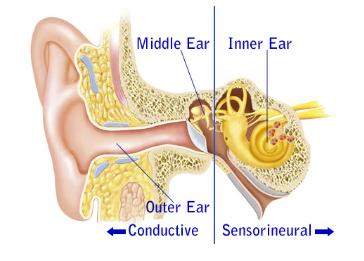
Conductive Hearing Loss
A conductive hearing loss occurs when one or more of the structures of the outer or middle ear are not working properly. For example, conductive hearing loss may be caused by the following conditions:
- wax buildup in the ear canal
- a hole in the eardrum
- fluid in the middle ear
- problems with the bones of the middle ear
Having a conductive hearing loss is like wearing earplugs so that you can only hear loud sounds. Many types of conductive hearing loss can be medically corrected.
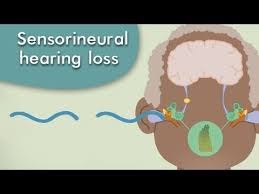
Sensorineural Hearing Loss
A sensorineural hearing loss may result from problems in the following:
- the cochlea
- the auditory nerve
- the hearing centres of the brain
Damage to the hair cells in the cochlea is the most common reason for sensorineural hearing loss. If damaged, the hair cells may not be able to detect different sounds. Most types of sensorineural hearing loss are permanent and cannot be corrected by surgery or medication. Depending on your child’s degree of hearing loss, they may greatly benefit from the use of hearing aids or a cochlear implant(s).
Mixed Hearing Loss
A hearing loss is classified as mixed when both conductive and sensorineural hearing loss are present. For example, a child with a permanent sensorineural hearing loss with a middle ear infection may have additional hearing loss (called “conductive overlay”). After the ear infection clears, and the conductive overlay disappears, the child would be said to have only a sensorineural hearing loss.
Unilateral Hearing Loss
If only one ear is affected with a hearing loss, it is referred to as an unilateral hearing loss. Many students with unilateral hearing loss may be at risk for speech and language delays and/or academic challenges. While some students will never exhibit an effect from the unilateral hearing loss, others may experience many challenges.
Although a child with unilateral hearing loss will still have access to sounds and speech through their better ear, it is still very important to consider various options to improve your child’s ability to hear (especially within the noiser listening environments, such as the classroom) and ensure listening accomodations are made given their particular type of hearing loss and specific listening needs.
Bilateral Hearing Loss
When both ears are affected, it is known as bilateral hearing loss.
Progressive Hearing Loss
A progressive hearing loss is one where, over time, the hearing loss becomes progressively worse in one or both ears. Some individuals have risk factors for late onset or progressive hearing loss such as:
- Cytomegalovirus (or CMV)
- prolonged mechanical ventilation at birth
- large vestibular aqueducts
- certain syndromes (Turner syndrome, Alport syndrome, Wolfram syndrome)
An annual hearing assessment, by an Audiologist, is recommended for students who have hearing loss because not all hearing losses are stable.
This annual review of your child’s hearing levels can help to provide your child’s school team with any new information about your child’s hear loss, make any adjustments to your child’s classroom listening equipment, and support specific accommodations to your child’s programming and classroom listening environments, based on his or her specific listening needs.
Otitis Media (Ear Infections)
Otitis media is a medical term that refers to middle ear infections or inflammation of the middle ear. Fluid in the middle ear is usually, but not always, found with this condition. This fluid may be watery or like mucus, and may or may not be associated with infection.
Otitis media is very common in children, especially young children, and is the most common cause of conductive hearing loss. The symptoms of otitis media may include the following:
- fever
- ear pulling
- irritability
- inattentiveness
- earaches
- difficulty hearing in one or both ears
Frequent otitis media is cause for concern because of the long-term effects on a child’s ability to listen, process sounds, communicate, and socialize.
Some individuals who have permanent, sensorineural hearing loss (see below) also get otitis media, resulting in additional loss of hearing sensitivity. It is recommended to also check your child’s hearing after they have been treated for otitis media.
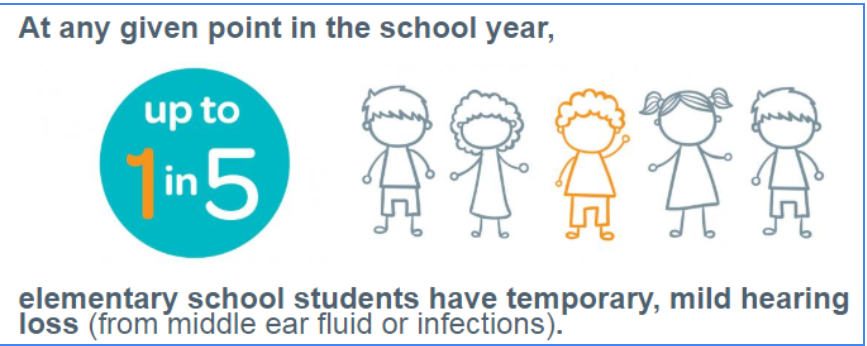
Different Degrees of Hearing Loss
The level of a person’s hearing loss can be described in two ways:
- as a decibel (dB) hearing level
- as mild, moderate, severe, or profound hearing loss
Most individuals with a hearing loss will have some amount of residual hearing. Your child’s audiologist, Speech-Language Pathologist (SLP), or Deaf and Hard of Hearing Itinerant Teacher (DHH-IT) will be able to give more information about your child’s degree of hearing loss and can explain the sounds that your child may or may not hear.
Resources
Relationship of Hearing Loss to Listening and Learning Needs
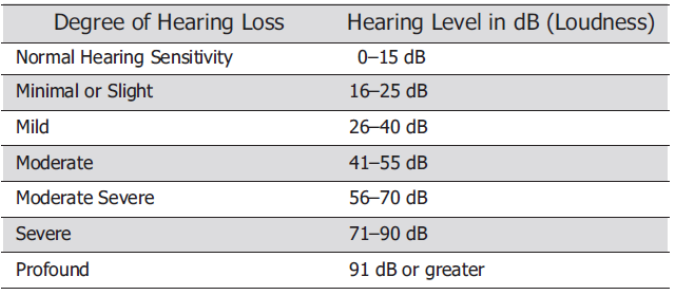
Effects of Hearing Loss on Speech and Language WITHOUT Supports and Intervention
Children with minimal or slight hearing loss or unilateral hearing loss may:
- miss some consonants
- experience mild difficulty with auditory language learning
- experience difficulty listening at a distance or in noisy situations
Children with mild hearing loss may:
- miss quiet speech sounds
- experience difficulty with auditory learning
- experience speech/language delays
- appear to be inattentive
Children with moderate hearing loss may:
- hear almost no speech sounds at normal speaking levels
- make speech sound errors
- experience language delays
- experience learning difficulties related to language delays
- appear to be inattentive
- need to be less than two metres away from speaker for best listening distance
Children with severe hearing loss may:
- hear no speech sounds at normal speaking levels
- speak, but their speech may be difficult to understand
- experience language delays
- experience learning difficulties related to language delays
- appear to be inattentive to verbal communication (may not realize that speaker is speaking)
Children with profound hearing loss may:
- hear no speech or other sounds
- experience extreme difficulty understanding speech
- produce little or no verbal language
- experience learning difficulties related to language delays
- learn by visual cues or American Sign Language
- appear to be inattentive to verbal communication (may not realize that speaker is speaking)
Helpful Websites
What does Your Child’s Hearing Loss sound like? Starkeycanada website
